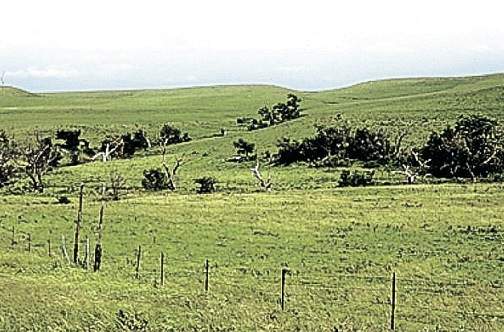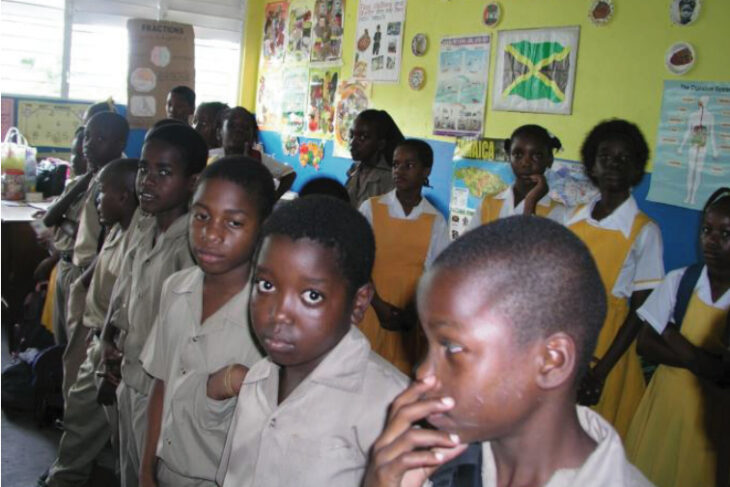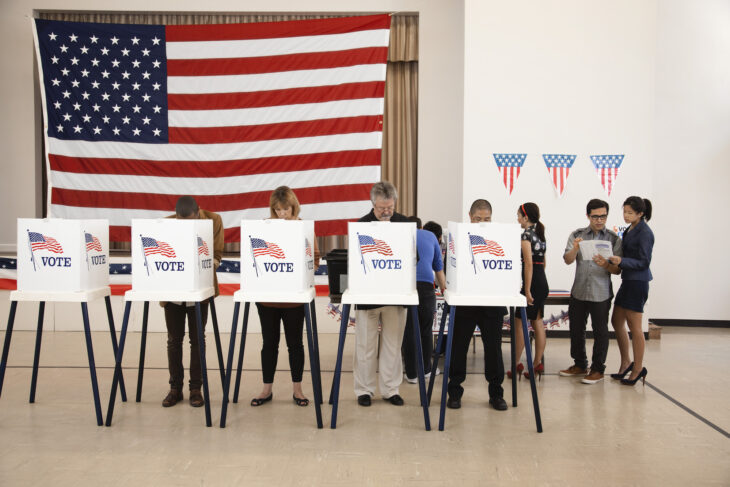
The issue of land has, since at least 1838, been one of the most pressing topics on the minds of the Jamaican people. I would venture to say that land — the access to it and all that it entails — remains the single most pressing issue in the national psyche. This fact was brought to the fore once again when the residents of Little London in Westmoreland were kicked off of the lands which they had been squatting on so that a developer can erect a mega hotel.
The plight of the squatters has elicited many responses, some varying from condemnation of them — the usual crowds calling them bums and leeches — while others have voiced concern at the fact that these people who have been living on this land, in some cases for generations, will be left homeless.
Both the cold-hearted idiots who call for their removal as well as the naïve liberal who worries about where the people will live, I think, miss a greater issue: the fact that Jamaica has had no land reform and, as a result, everything which stems from land ownership remains locked in a few elite hands never to be accessed by the masses unless they manage to put enough pressure on politicians to regularize their former informal settlements.
Issue of land ownership
Emancipation was achieved on 1838, the horror of chattel slavery was abolished and those former slaves were now free men. But a freed man with no land is a pauper and so was the case in post-emancipation Jamaica. Following the abolition of slavery, the former slaveholders were paid, they maintained their lands, and those who couldn’t afford to maintain their lands sold them and got capital for future ventures. Nowhere in this history did the former slaves get a break, they got no land — save for the free towns obtained with church help and usually far from prime areas — no money and, for the most part, had no rights as rights in those days (some would also say today) were bestowed based on one’s status.
Large swaths of land were held either by the Crown, the Anglican Church, or the former slaveholders. In almost all cases the majority of the lands held by these entities were idle and unproductive, unused even as cattle lots. The ownership of this land, the majority of Jamaica’s arable land — waterfront and housing represented the concentration of wealth in the hands of a few who got immensely wealthy even as incidents such as the Morant Bay rebellion took place with people demanding land, or the Kingston earthquake struck and people were moved to slums rather than given land.
The question of who owns land today is an interesting one. While the Anglican Church has shed itself of a lot of its land, it still owns a bit. The Crown, to no one’s surprise, also retains a large amount of land, but interestingly, while the rest is held in private hands, the lion’s share is held by the same families which, inevitably, trace their linage (or at least a substantial part) to the slave owners and plantation owners and trace the birth of their capital (or at least a substantial part of it) to the practice of slavery and everything that came after it post-emancipation.
Yes, it is true the current holders of the land didn’t whip us, and it could be argued (a hard argument to make and one that would fail) that the current owners of the land operate differently, but that is immaterial. They have and continue to profit from ill-gotten gains. Those who have suffered the initial crime are dead, their descendants suffer because no restitution was given to their forefathers, restitution is due to their descendants to stop the suffering.
But what is this land used for? We know that State lands, for the main part, remain idle and unproductive with only a portion put to use in the form of agriculture, industry, or housing, but what of the private lands? Those lands also, and in a stage greater than the State, are idle and unproductive. Yes, the owners of these lands also operate the large produce farms, manufacturing industries and the hotels, but that only sees a relatively small portion of the land being used with the rest being left idle as the owners speculate that sometime in the distant future it can be used for something. They take the calculated risk that the potential profits of tomorrow are greater than the one-off usage of the land (parcelling it up for housing, etc) and are able to rest easy in the knowledge that if the venture doesn’t come the idle land will remain theirs.
Housing issue
Why do we have so many squatters? Is there something in the Jamaican DNA that makes us open to creating informal settlements? The answer to this is simple, so simple, in fact, that children in primary school have stumbled upon it in social studies classes. Some would say we have so many squatters because we, as a people, are accustomed to the ‘freeness’ lifestyle and that we don’t want to legitimately purchase houses/land etc when it is easier to squat.
Clearly, people who hold that view have never squatted before if they think it is an easy venture, but that is a different discussion.
No, these people are forced into the position of squatting because affordable and available housing is near non-existent in this island. The fact is that vast swaths of land are held by absentee owners, and communities of workers in and around a given area (say a farming area or an industrial belt) who are unable to afford legitimate housing rather than sleep on the streets, squat. In short, we have had the issue of squatting because the issue of land, its ownership and usage has not been resolved
The issues causing the need to rent are much the same; those who own the land refuse to utilise it to build houses. This is the reason there is so little housing on offer and why people are either forced to squat — in the extreme case — or face the prospect of being perpetual tenants as the cost of housing skyrockets. New housing units are thrown up in an already congested Kingston Metropolitan Area and are invariably unoccupied and seemingly are being used for speculation at the worst of times or to rent at the best.
We, in the end, have so little housing on offer for the same reason we have little to no industry: those who have access to the land and money refuse to divest as they can make easy money off of idle land.
Land reform the only way
Land reform remains the only way to answer the questions of housing, food sustainability and our manufacturing slump. If we ask why land reform and redistribution is the only answer, we need to ask what is the largest and most secure investment people make that they are then able to leverage with banks to take out loans? There is one of the key reasons those absentee landowners and industrialists who own over half of Jamaica don’t divest themselves of this unutilised land: it is excellent collateral when opening a hotel, car mart, or import venture.
The examples of land reform are many and almost all of them have been successful in their implementation. Some of the nations that took this step may surprise you. Rather than leading off with the obvious, one very successful example of land reform was that which took place in the province of Taiwan. Controlled by the KMT who, by the resumption of the civil war in 45, were losing drastically on the mainland — due to the communist land reforms which saw the peasants join the PLA in droves — they sought to shore up control of the island by enacting sweeping land reform which saw lands being transferred from huge landholders and open collaborators with the Japanese to non-collaborators and KMT sympathisers. This along with a bloody repression of the popular local communist party saw them maintain their hold on the province.
The same took place in South Korea where huge swaths of land were taken from the former Japanese Government and the open collaborators (secret collaborators continued to retain positions of power as in Taiwan) and the redistribution (along with bloody repression of the popular workers’ party) saw the south Korean Government gain legitimacy among the people and buy-in from segments for the war with the north.
Cuba, closer to home, provides us with a textbook example of how land reform can be done with farms, houses, and industry removed from the hands of private capital and placed in the hands of the people. Even today, when they now allow for private property it is undergirded by the fact that land remains in the hands of the public.
China — with its booming economy soon to be the first in the world — has, in the past, had national land reforms and maintains at the provincial level land reform with land remaining in public hands and housing is a right; note that some provinces where this takes place have populations the size of the European Union.
Singapore, that is essentially a city-state and the go-to for every Jamaican, also had its own land reform as it early on understood that land, access to it and housing was a primary issue to be dealt with if the Government were to build a secure nation whose people are able to make money (let us not forget that the communist insurgency was raging on in South East Asia at that point).
There is also Zimbabwe, probably the most maligned and misunderstood nation especially when it comes to land reform. There we have seen lands taken from a small clique of white farmers and given over to the locals; we have seen the abandoning of large scale export products, such as tobacco, and the locals turning to local food consumption. It’s strange that during the supposed failure that was land reform, levels of hunger and access to food dropped as people had land to till and grew crops suitable to the local palate.
Then there is the Bolivarian Republic of Venezuela which, in spite of sanctions and other external economic pressures, encourages citizens’ groups to take over, renovate and utilise abandoned lands while also, as of this year, provided some four million housing units to its citizens who previously had no property.
The benefits of land reform are myriad and this has been spoken of by groups as varied as USAID (a group which never met a land reform it liked), the UN, World Bank, IMF (agencies which are far from the frothing left-wing movements) who all agree that land reform and redistribution would see economies revving up as people would have the capital to spend.
Monies going towards rent now go towards home improvement or even starting up a business, instead of worrying if/when you are evicted from the idle lands and lands that are tilled.
One is able to take out loans, real loans which are actually backed by collateral which would spark an industrial and potentially a manufacturing revolution as more large, idle lands are freed up from individual ownership are instead transferred to individuals in small parcels for their ventures.
The Government and Opposition who are beholden to those land barons cannot be relied upon to even begin contemplating land reform, let alone implement it, therefore it is up to the people to demand it. This is not squatter vs middle class, we are all in the same boat. No one’s dreams can be realised in part because the ownership structure of land (and therefore wealth) remains unchanged and in the hands of those who historically have not had our interest at heart. We must demand a change, we must demand that events like Little Bay never take place again, that the sell-off of state lands to private investors must cease and that a serious discussion be had and a resolution found when it comes to this issue.
The issue of land never goes away and only gets worse the longer it is put off as South Africa is seeing. We the people must organise and demand a resolution to this now while we are still able to have a conversation on the matter or it will be too late and the conversation will be one of force of arms.



